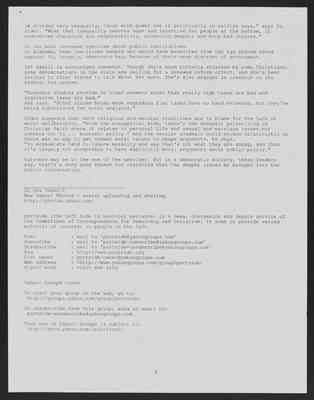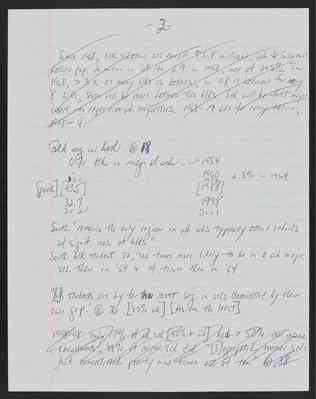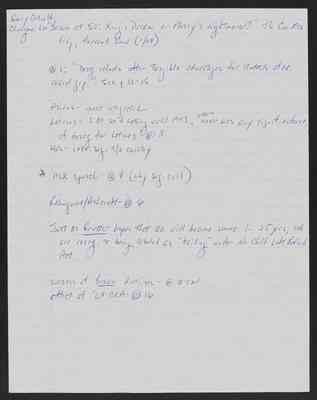Pages
11
In Alabama, some low-income people pay income tax at a higher rate than the wealthy. "The state's powerful timber industry, which owns 71 percent of the land, pays 2 percent of the property taxes. Meanwhile, we overtax poor people with punishing high sales taxes even on groceries, reaching 11 percent in some countries," she says. At the same time, the state's infrastructure, including public education, is ranked near the bottom of the 50 states. "We are not prospering," she adds.
While Alabama is an extreme case, Hamill believes it should be a warning about what can happen when the burdens start getting shifted onto middle- and lower- income people. She's concerned that in the national tax debate, "people are not looking at it from any moral framework other than, 'Whatever I've got, I've earned, and it's all mine.' "
People of faith see this issue from varying perspectives, however. The Rev. Robert Sirico, who heads the conservative Acton Institute for Religion and Liberty, says it's important to recognize the role that economically successful people have in ensuring a dynamic and prosperous economy - that the majority of their wealth is invested and is employing people.
"While I agree that Americans tend not to have a very sophisticated moral understanding of social and financial obligation," he says, "part of the problem is that when tax rates reach confiscatory levels, as high as 50 percent, it causes people to react and want to keep it all."
Father Sirico favors a flat tax, where everyone pays the same percentage of their income and the poorest of the poor are exempt - a direction in which some say the US is heading. He sees the progressive system, which taxes higher incomes at a higher rate, as not only unjust, but as proportionally decreasing economic productivity.
Others take issue with that view. "If you look at economic performance over time, or at international comparisons, there is no evidence that more unequal income distribution is good for economic growth," insists Bernard Wasow, senior economist at The Century Fund.
In Mr. Wasow's view, a progressive tax is fairer. "Economists generally talk about the burden a tax places on a family, and it's a question of imposing equal burdens," he says.
Richest nation with highest poverty
Many of those concerned with rising inequality agree that it is not the gap per se that is the problem, but what is happening to people at lower income levels.
"I'm less concerned with the ratio between the top 20 percent and the bottom 20 percent than with what's happening to the bottom 20 or 40 percent," says Ron Sider, head of Evangelicals for Social Action. "It's a scandal that the richest society in human history has the highest poverty level of any industrial nation."
People of other faiths share that concern. "Poverty is a theological issue from a Jewish perspective," says Rabbi Brad Hirschfield, of the National Jewish Center for Learning and Leadership, because it "assaults a human being's dignity as the image of God." But, he adds, "I worry even more about the dignity of a society that allows people to be impoverished."
In Islam, the Koran's emphasis on a just society requires that every Muslim give 2.5 percent of his wealth each year to the poor. "Yet most Muslims would say, too, that public policy must address poverty," says Ihsan Bagby, of the University of Kentucky. "If God doesn't want disparity between rich and poor, then that has to be addressed at all levels of society, from political leadership to corporate managers down to the individual."
While tax policies are far from the only means to attack poverty - education, minimum wage, the faith-based initiative, and welfare reforms are also seen as key - many see the large tax cuts as undermining the country's capacity to support those programs adequately.
They say that bringing moral considerations into the economic debate is essential to the well-being of a democratic society.
"We must be concerned with the ratio of unequal wealth because money is power, and when it
2
12
is divided very unequally, those with power use it politically in selfish ways," says Dr. Sider. "When that inequality removes hope and incentive for people at the bottom, it undermines character and responsibility, producing despair and more bad choices."
It can also increase cynicism about public institutions. In Alabama, even low-income people who would have benefited from the tax reform voted against it, largely, observers say, because of their deep distrust of government.
Yet Hamill is encouraged somewhat. Though she's been bitterly attacked by some Christians, some denominations in the state are calling for a renewed reform effort, and she's been invited to other states to talk about her work. She's also engaged in researched on the federal tax system.
"Economic studies provide no clear answers other than really high taxes are bad and regressive taxes are bad," she says. "Other claims being made regarding flat taxes have no hard evidence, but they're being substituted for moral analysis."
Sider suggests that both religious and secular traditions are to blame for the lack of moral deliberation. "From the evangelical side, there's the dreadful privatizing of Christian faith where it relates to personal life and sexual and marriage issues but somehow not to ... economic policy." And the secular academic world became relativistic so there was no way to get common moral values to shape arguments, he says. "So economists tend to ignore morality and say that's not what they are doing, and thus it's largely not acceptable to have explicitly moral arguments about public policy."
Fairness may be in the eye of the beholder. But in a democratic society, these leaders say, that's a very good reason for insisting that the deeper issues be brought into the public conversation.
------------------------- Do you Yahoo!? New Yahoo! Photos - easier uploading and sharing. http://photos.yahoo.com/
portside (the left side in nautical parlance) is a news, discussion and debate service of the Committees of Correspondence for Democracy and Socialism. It aims to provide varied material of interest to people on the left.
Post : mail to 'portside@yahoogroups.com' Subscribe : mail to 'portside-subscribe@yahoogroups.com' Unsubscribe : mail to 'portside-unsubscribe@yahoogroups.com' Faq : http://www.portside.org List owner : portside-owner@yahoogroups.com Web address : http://www.yahoogroups.com/group/portside Digest mode : visit Web site
Yahoo! Groups Links
To visit your group on the web, go to: http://groups.yahoo.com/group/portside/
To unsubscribe from this group, send an email to: portside-unsubscribe@yahoogroups.com
Your use of Yahoo! Groups is subject to: http://docs.yahoo.com/info/terms/
13
-1-
See p. 17
We know Brown worked - if given a chance: --sch seg. reached low point in history late 1980s; --deseg most common in 17 states w/de jure seg before Brown, where enforce. was concentrated
Milliken v. Bradley, 418 US 717 (1974) - rejected deseg. across city suburban lines (5-4); San Antonio Ind Sch Dist v Rodriguez, 411 US 1 (1973) - rejected = finances [illegible] Scl dist. (5-4) "Schools More Separate: Consequences of a Decade of Resegregation," Gary Orfield w/Nora Gordon (7/01)
@1: "Many Amer. believe that deseg is impossible because of wh flight, that it led to a massive trans. to priv. schools, that pub opin. has turned against it, that blks no longer support it and that is is more beneficial for students to use deseg. funding for compensetory educ. None of those things is true.
1964 - 98% south blks still in seg schools - Orfield @2. (Only period in wh there was active positive support by both [illegible] & exec branch was the 4 yrs following 1964 CRA (1965-68) Nixon elect. ('68) turning point ([illegible] 4 Justices 1968-73 - most active sct instrucion 1970s - only sign if fed for deseg (emergency school aid act)
deseg rose slowly during this per. law basically unchanged between mid-70s and 1991, then (OK city) Board v. Dowell, 458 U.S. 237 (1991) - scl. dist. [illegible] suff. implemented [illegible] released from ct orders (author return to neighborhood scl) "seg continued to intensity to the 1990s - Orfields @1
14
- 2 - Since 1968, black & Latino schools enroll [up arrow] 5.8 million, wh [down arrow] 5.6 million Latino pop. 2 million in '68 to 6.9 in 1998, incr of 245%. In 1968, 3 times as many blacks as Latinos; in '98 7 Latinos for every 8 blacks; soon will be more Latinos than blacks. Schools will be first major institution to experience non-white majorities. 1968 - 17 whites for every Latino; 1998-4. Black segregation in South @18 % blacks in major white schools in South 1954 33.1 1960 2.3% in 1964 1970 peak (43.5) 1988 32.7 1998 30.2 2001
South "remains the only region in which whites typically attend schools with significant number of blacks." South black student 32,700 times more likely to be in a white majority. Schools then in '54 & 14 times then in '64.
"White students are by far the most segregated in schools dominated by their own group." @ 36 (80% white) (Asians the least) 1998-98: only 17% of white schools (90% and white) had more than 50% low income enrollments; 88% of minority school did. "Segregated minority schools had concentrated poverty nine times out of ten." @38
15
Gary Orticle Chungmei Lee "Brown at. 50: King's Dream or Plessy's Nightmare?" The Civ. Rts Proj, Harvard Univ (1/04)
@ 1: "Deseg. schools offer tangible advantages for students of ea. racial grp." See p22-25
Asians - most integrated Latinos - S.Ct. sci d nothing until 1993, "there never was any signif. enforce. of deseg. for Latinos." @ 3 blks - iner. seg. t/o country
* mlk speech - @ 4 (why seg. evil)
Rehnguist/Ashcroft- @ 6
Just as Gruther hopes that aa will become unnec. in 25 yrs, sch are reseg. + being labeled as "tailing" under No Child Left Behind Act.
success of Brown districts - @ 10-12 effect of '64 CRA - @ 16




